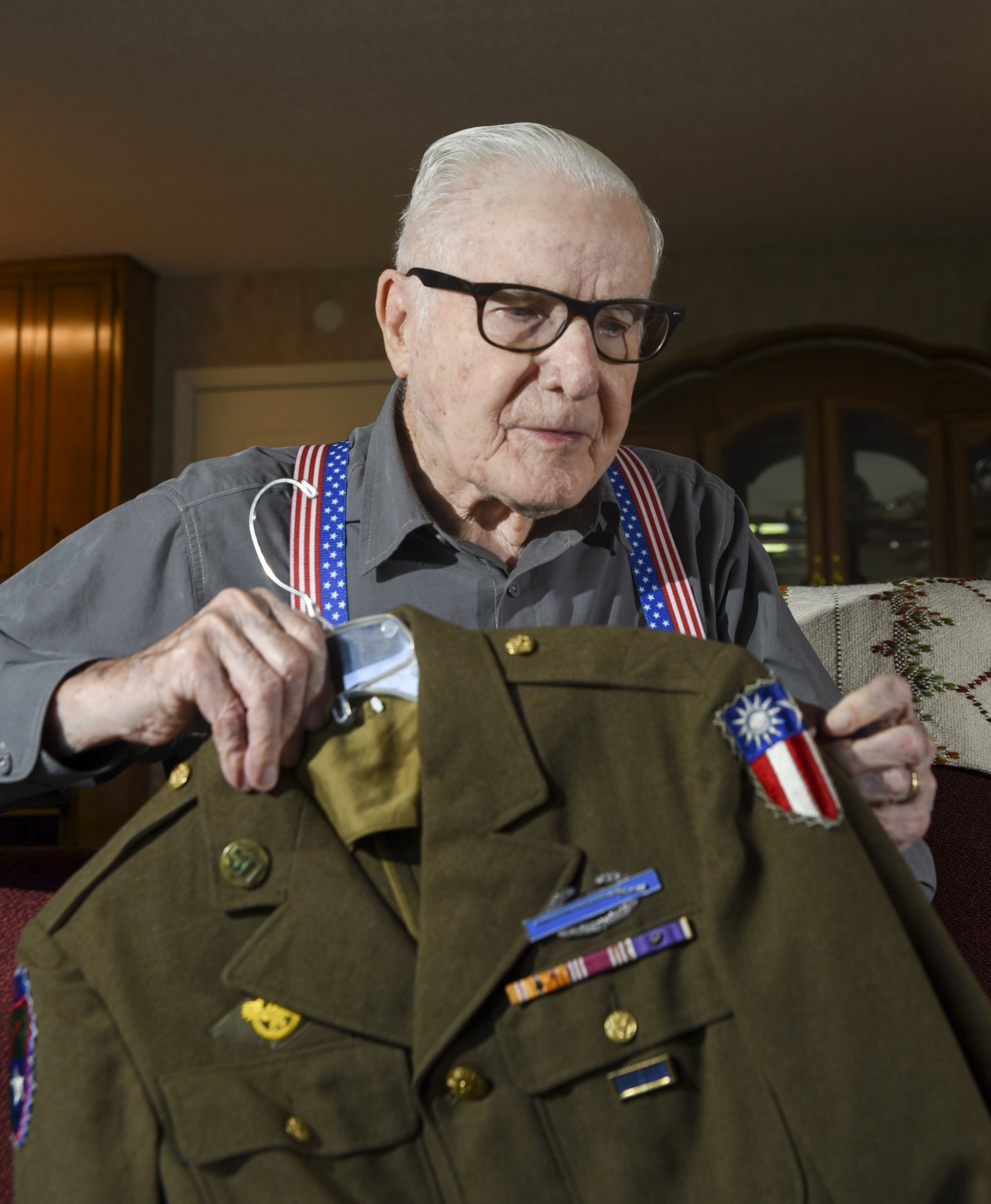BIO
Name: Robert ShriverAge: 93Current city of residence: Soddy-DaisyBranch of the military: U.S. ArmyYears of service: 1943-1945
 View our 21 Veteran Salute page
View our 21 Veteran Salute pageRobert Shriver's words echo through history, and his reflections offer perspective, as well as a call for peace.
"War is stupid," the 93-year-old said recently in his comfortable chair - the one on the left opposite its matching companion for his wife - in his Soddy-Daisy home. "And the guys who declare war are never the guys who are called on to go fight the war."
Shriver knows. He was a machine gunner in World War II and joined up with Merrell's Marauders in India in 1943. The group needed the reinforcements after working behind enemy lines and losing most of their original 3,000 soldiers.
It, like most every assignment in World War II - especially those that involved fighting the Japanese forces - was not for the weak-kneed.
"It was tough, but that's why we were trained, and they were so hard on us in boot camp," Shriver said.
How hard was the preparation training at Fort Swift in Texas before he was sent overseas?
"When I was issued a mule [for mountain travel] in Asia," Shriver said, "I named that mule after my drill sergeant back at Fort Swift."
The threats from the relentless and ruthless Japanese forces in Burma were only part of the concern. Sickness was rampant. The monsoon season produced months and months of torrential rain. Dysentery was so severe that, according to "The Road to Burma" by Paul Mehney, during extended battles the Marauders were known to cut the seats out of their pants so they did not have to stop fighting to go to the bathroom.
The original goal of the Marauders before Shriver became part of the unit was to reclaim the Burma Road so Allied forces could send supplies and aid into China and help the the Chinese forces fend off the Japanese.
Part of that mission for Shriver and his group was taking and then protecting an airfield several hundred miles behind the Japanese front. Shriver said he can talk about his experiences in the war - "I'm an old blabbermouth," he admitted - because he did not see constant combat but he understands his fellow veterans who do not like to share the horrors they saw.
"To my knowledge I never killed anybody," he said, " but I might have. They tried to kill me and I tried to kill them, but I don't know for sure if I ever killed anyone.
"I thank God every day for that knowledge."
Atop a mountain, Shriver, armed with his machine gun, exchanged fire with the Japanese. Shot in the arm several times, Shriver was forced to walk at night to the field hospital.
The shrapnel - which Shriver has kept to this day - had shredded his arm and was embedded in his bone. He fought through a case of hepatitis he caught in the hospital and was shipped home and discharged Oct. 4, 1945.
He spent 32 months in the Army and a little more than a year overseas, with about half that spent in hospitals.
But like so many of that generation and everyone who served, there's not a day that goes by that Pvt. First Class Shriver does not think of his time in service to the United States of America.
"I suppose there are some things I wish I hadn't done and lots that I wish I had," he said. "But I don't need to see [the World War II memorial) in Washington, D.C. I have my own memorial in my mind every day.
"And that's enough for me."
Contact Jay Greeson at jgreeson@timesfreepress.com and 423-757-6343.

